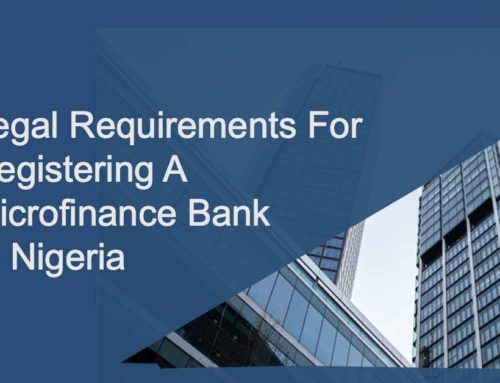Opening and operating a corporate bank account in Nigeria requires strict adherence to extant laws and regulatory policies established by the Central Bank of Nigeria (CBN). These regulations govern the documentation requirements and set the minimum standards banks and other financial institutions must follow. Failure to comply with these standards could expose a financial institution to legal risks, regulatory fines, or even criminal prosecution in instances of negligence.
This article highlights the legal requirements, documentation, and procedures involved in opening and operating a corporate bank account in Nigeria, as well as the regulatory framework that governs these processes. Kindly reach out to us if you have any questions.
What is a Corporate Bank Account?
A corporate bank account is specifically created for a corporate entity, distinct from a personal account meant for individuals or groups of individuals. It is designed to serve businesses, allowing them to manage transactions, handle payrolls, and engage in other financial activities at a larger scale than personal accounts.
Laws Regulating Corporate Bank Accounts in Nigeria
The legal framework governing corporate bank accounts includes:
- Central Bank of Nigeria (CBN) Act, 2007: This act established the CBN as the primary regulator of all financial institutions in Nigeria.
- Banks and Other Financial Institutions Act (BOFIA), 2020: This law provides guidelines for establishing and operating financial institutions.
- Nigerian Deposit Insurance Corporation Act, 2023: Mandates the insurance of customer deposits by financial institutions.
- Credit Reporting Act, 2007: Regulates the retention and reporting of credit information by financial institutions.
- Money Laundering (Prevention and Prohibition) Act, 2022: Regulates financial transactions and reporting requirements to prevent money laundering and terrorism financing.
- CBN Policies and Directives, such as the CBN Customer Due Diligence Regulations, 2023.
Eligibility for Opening a Corporate Bank Account
Corporate accounts can be opened by registered businesses including sole proprietorships, partnerships, companies, and NGOs. Eligibility is restricted to legally registered entities, such as Incorporated Trustees or Companies Limited by Guarantee.
Procedure for Opening a Corporate Bank Account
To open a corporate account, the company’s board of directors must pass a resolution specifying the bank, the signatories, and the procedure for authorizing transactions. Any future changes to the account signatories must be authorized by a new board resolution.
Requirements for Opening a Corporate Bank Account
Financial institutions require various documents before opening a corporate account, including:
- Completed account opening forms
- Certificate of incorporation, memorandum, and articles of association
- Valid identification and BVNs for directors, shareholders, and secretaries
- Two references from existing corporate account holders
- Resident permit for foreign shareholders/directors
- Tax Identification Number (TIN)
Anti-Money Laundering (AML) and Know Your Customer (KYC) Requirements
Banks must categorize customers based on their risk profile (high, medium, or low) in compliance with AML/CFT/CPF laws. Information such as identification of politically exposed persons (PEPs), ultimate beneficial owners (UBOs), and SCUML registration for NGOs and DNFBPs must also be disclosed.
Customer Due Diligence (CDD) Procedures
As part of KYC, the bank verifies the provided address of the corporate entity and requires recent utility bills to confirm the address. Additionally, corporate account holders must provide two references from individuals familiar with the company’s directors and operations.
Challenges of Opening Corporate Accounts for Foreign-Owned Companies
Foreign-owned companies and joint ventures often face challenges in providing complete documentation, particularly due to the BVN requirement for all shareholders, directors, and secretaries. Foreign nationals may need to visit registration centers in their home countries to obtain BVNs.
Conclusion
Opening and operating a corporate bank account in Nigeria requires strict compliance with legal and regulatory frameworks established by the CBN. Ensuring all necessary documentation is complete and in line with the required AML/CFT/CPF regulations is crucial to mitigate risks and facilitate smooth banking operations. Foreign-owned businesses, in particular, should plan ahead to navigate potential challenges related to BVN and regulatory compliance. A well-prepared approach will ensure that corporate entities enjoy the benefits of a robust banking relationship that supports their business growth.




